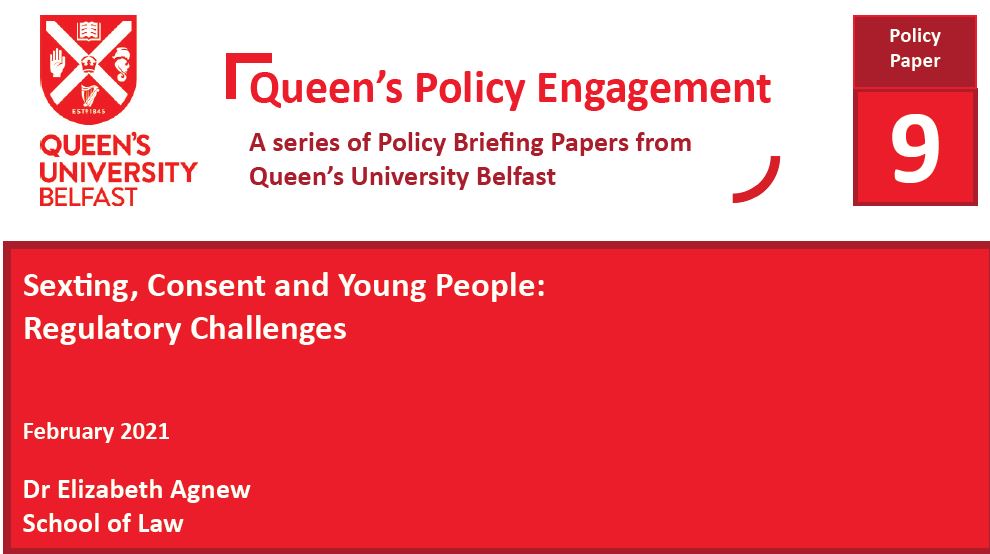Sexting, Consent and Young People: Regulatory Challenges – A New Policy Paper
Sexting among young people is impacting them to such an extent that it is causing concern among child protection and welfare professionals says Dr Elizabeth Agnew.

Sexting among young people is a form of peer-based sexual behaviour which has attracted significant social and legal attention. Data varies significantly on the prevalence of the sexual behaviour among young people. Most studies estimate between 15-40% of young people engage in sexting.
As with most data associated with harmful behaviours, in particular harmful sexual behaviours, the actual figure is often higher e.g. unreported cases. In the case of peer-based sexting behaviours, this may include cases where the young person does not recognise themselves as a ‘victim.’
While figures vary, it is clear that sexting among young people is a recurrent behaviour raised within social and legal policies and is impacting enough young people to cause concern among child protection and welfare professionals.
A new Policy Paper from the School of Law at Queen’s University examines some of the concerns faced by professionals when conceptualising and responding to certain sexting behaviours as either ‘explorative’ or ‘harmful.’
To view this Policy Paper, please click here.




